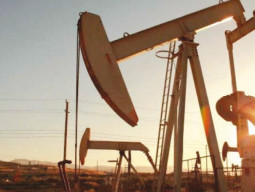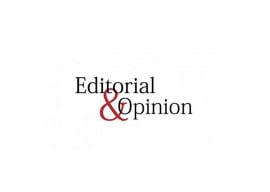
ISLAMABAD:
Inflation rose 4.2% in April, crossing well past the 4% mark for the first time in the last 16 months, because of increase in prices of food and other consumption goods, the Pakistan Bureau of Statistics reported on Monday.
Inflation is recorded on the Consumer Price Index (CPI) that captures prices of 481 commodities every month in urban centres. In December 2014, inflation stood at 4.2% and since then it had been below 4%, except for February 2016.
Inflation hits 14-month high, reads at 4.02%
The national data collecting agency released the figures following concerns shown recently by the Statistics Division over credibility of the official data.
The Statistics Division has called for constituting a committee to probe the authenticity of official figures compiled by the PBS. The inflation data is not an exception as the PBS does not take into account implications of the increase in electricity prices through the levy of surcharges.
Secretary Statistics Division Shahid Hussain Asad retired last week and there were apprehensions that influential top guns of the PBS would try to bury the matter, sources said.

Last week, the Senate Standing Committee on Finance and Statistics also discussed the possibility of constituting a sub-committee to probe the PBS affairs including the illegal holding of the charge of chief statistician for six months by the incumbent head without taking oath of office from the president of Pakistan.
In its last announcement, the Monetary Policy Committee of the State Bank of Pakistan had kept the policy rate unchanged at 6% due to expectations of increase in prices of goods. The central bank’s decision was in line with the advice of the International Monetary Fund (IMF) that wants the continuation of positive real interest rates, consistent with its monetary targets.
The central bank has noted that although the inflationary trend has reversed, it is not alarming and average inflation will remain around 4% in the current fiscal year.
For the next fiscal year 2016-17, the government has decided to set the inflation target at 6% while the IMF has projected 5% inflation for the year.
The latest IMF report underlined that inflation was gradually rebounding as the favourable impact of past declines in international oil prices has started waning.
The PBS monthly bulletin showed that average inflation in July-April also slightly picked up to 2.8%. It will not affect the overall target of 6%, as reinforced in the latest monetary policy statement.
The Wholesale Price Index remained subdued at 0.6% on an annualised basis.
Price breakdown
After increasing for five months in a row, the non-food non-energy inflation, commonly known as core inflation, dropped to 4.4% in April over the same month of previous year, according to the PBS.
Heavy indirect taxes and absence of magistracy powers to check prices of essential items were causing the surge in prices. The government has not even spared pulses from the levy of import duties, causing a significant increase in their prices. The country is no more self-reliant in pulses and its needs are met through imports.
Gram pulse prices surged 60%, followed by a 56.2% increase in mash pulse prices, 51.7% in gram flour prices and over 10% in sugar prices despite surplus stocks of the sweetener.
With decline in oil prices, consumers expect low inflation
In December last year, the government increased regulatory duties on 350 items besides imposing an additional 1% customs duty on thousands of imported goods including food items.
According to the PBS, prices of the food and non-alcoholic beverage group rose 3.5% in April over a year ago. The food group has over one-third weight in the CPI basket and any change in its prices has an effect on overall prices.
The perishable food item prices also rose almost 3% year-on-year in April.
Published in The Express Tribune, May 3rd, 2016.
Like Business on Facebook, follow @TribuneBiz on Twitter to stay informed and join in the conversation.

































































COMMENTS (1)
Comments are moderated and generally will be posted if they are on-topic and not abusive.
For more information, please see our Comments FAQ